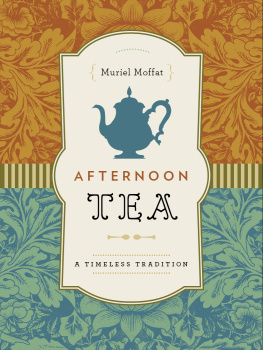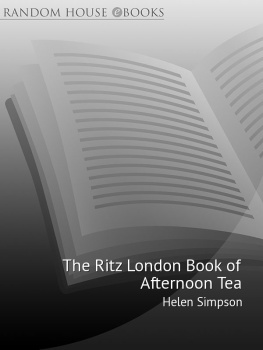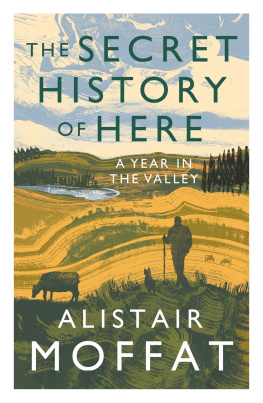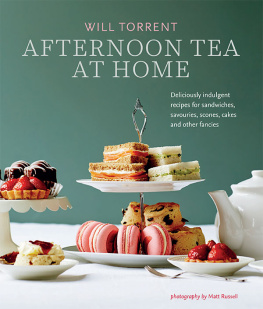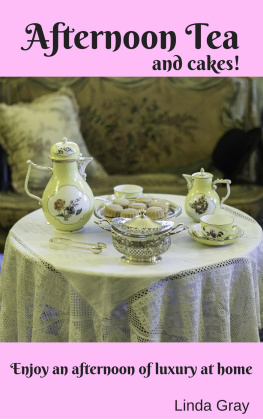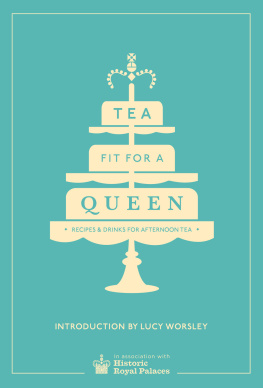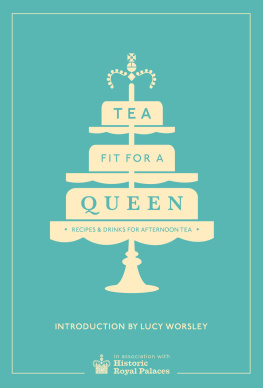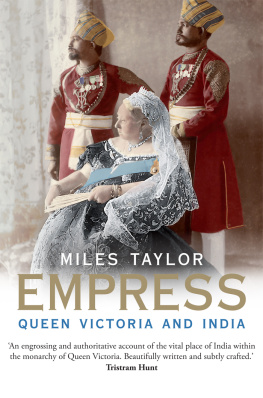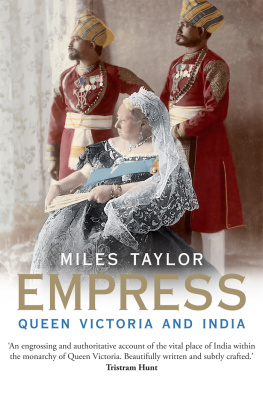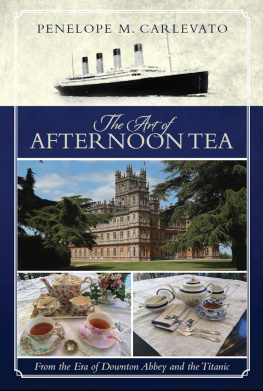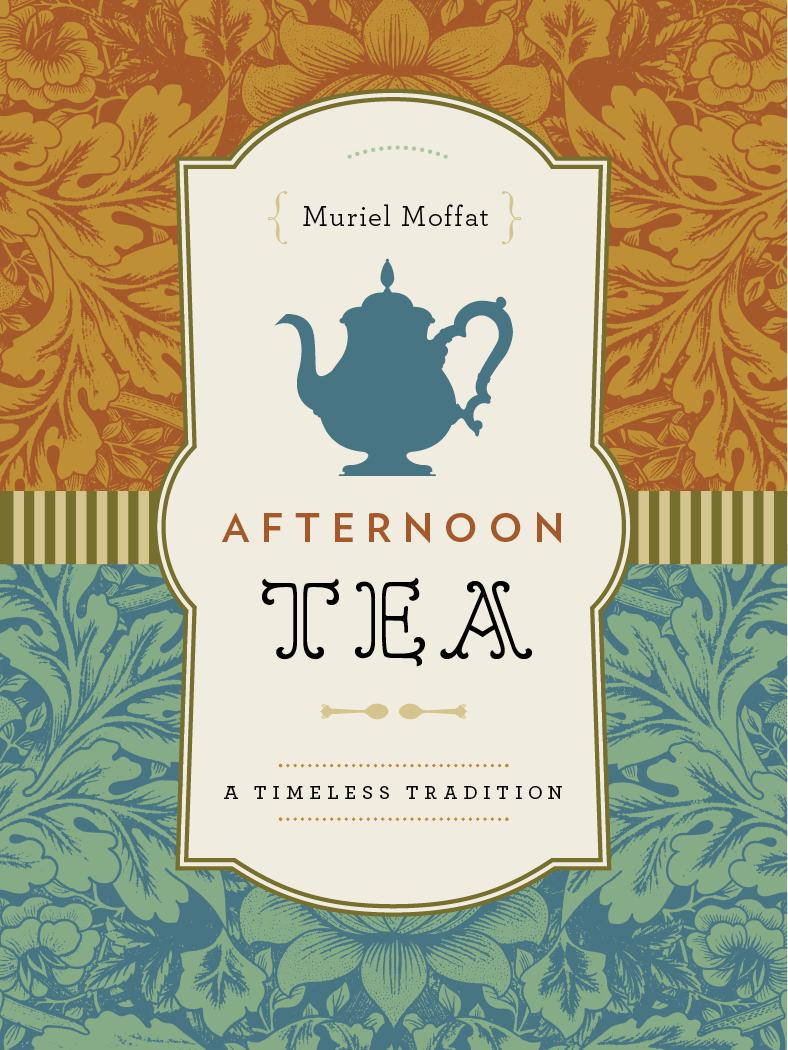


Dedicated to
Grandma Pet, Grandma Sugar, my mother, and to those who continue to believe loving family traditions are the most valuable inheritance we can leave behind.

Contents
{ }
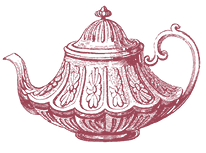
Romancing the Tea
M uch has been written about teas and all matters relating to teas, so when I started my research, I found it curious that very little had been written about two great traditions together: the Empress Hotel and Afternoon Tea! The birth of Afternoon Tea: A Timeless Tradition is the result of my curiosity.
I certainly do not profess to be an expert on either subject, but I do confess my love of family and the traditions that help make them stronger and better.
Those who know me personally will be witness to the fact that I often say must not have had an English grandmother as the explanation or justification for a mishap, unfortunate incident or just plain lack of common sense. My theory has always been if you didnt have an English grandmother, how could you possibly be expected to know?
Born and raised in British Columbia, always an inhabitant of Vancouver Island, the thought of not having at least one English grandmother was, to me, unimaginable. I was most fortunate in that I had an English grandmother and an English great-grandmother, on my mothers side, who lovingly nurtured, supported and instilled in me the importance of traditions and family.
Although my fathers mother was also English, she is another matter entirely.
My paternal and maternal grandparents were all from England. My great-grandfather, Thomas, on my mothers side, was a British Army officer and I have many fond memories of him.
Always the English gentleman, he dressed in fine suits, white shirts, always with a tie. He had a large white handlebar moustache that was impeccably groomed. Elizabeth, his wife and my great-grandmother, very much shared his same adventurous spirit.
In 1899, Queen Victoria had recently celebrated her Diamond Jubilee when England declared war on South Africa. Great-Grandfather, with Great-Grandmother and her English china dinnerware and tea service in hand, headed to South Africa. She refused to leave England without her tea service. Those dishes traveled from England to South Africa, back to England, and then across Canada and now hold a place of honour in my china cabinet. On special occasions, I use this china and when I do, I feel their warm presence in my home. I have always joked with my family on these occasions assuring them the grandmothers were with us.
Thomas and Elizabeth had three daughters: Mabel, Dorothy and Barbara. Mabel was my grandmother, a petite woman with snow-white hair, and sky-blue eyes set in a perfect English complexion. Although every inch a lady, and a dear one at that, she was one you did not want to cross. The fact she perpetually smelled of lavender could easily throw those who didnt know off guard.
Her teapot never got cold and she made scones so light her culinary admirers said angels could float upon them. When asked for her secret scone recipe, she would smile sweetly and say, Oh, its nothing, its just like that, and everyone knew that was all they were getting of her secret scone recipe.
She read our tea leaves with much enthusiasm on her part and great anticipation on ours and we were never disappointed.
Everyone seemed to have nicknames in those days and she, with the lavender scent, was Grandma Sugar. My great-grandmothers nickname was Grandma Pet and the two of them were my best friends growing up. I spent my summer vacations at Grandma Sugars home and this is where I received most of my tea education.
The taking of Afternoon Tea, every day at 4:00 p.m., was something my family always did and I have wonderful memories of this from the age of four. My first tea experience was with milk tea, which is three-quarters milk and one-quarter tea.
Grandma Pet set her tea table with the fine bone china dishes, and proper tea etiquette was shared with me from the time I could sit upright in a chair. Grandma Sugar spent hours, it seemed, teaching me how to hold a cup and saucer properly, how to handle a spoon gracefully, the proper way of eating the scones with the Devon cream and strawberry preserves and, of course, how to make pleasant conversation with ones attending company.
I am most fortunate to be able to say the belief that children should be seen and not heard was not part of our family ways and I have continued that philosophy with my own. The sound level at our family functions would deafen some, but I wouldnt have it any other way.
On very, very, special occasions we would go to the Empress Hotel for Sunday Afternoon Tea. The grandmas said the Empress Hotel was the place to go and the place to be seen, and it made me feel extraordinarily special. We would go to the 11:00 a.m. service at church and then on to the Empress for Afternoon Tea and, each and every time we went, it was as magical as the time before.
I would wear my best pinafore dress with white anklet socks rolled twice over to make a perfect cuff, black patent shoes, white lace gloves that took forever to put on, only to be removed the moment we stepped inside the building, as that was the proper way I had been taught and, of course, a hat, the kind with the ribbons falling from the crown, to control the hair. My hair would be rolled in rags the day before in the hopes of releasing a mass of curls for the special outing.
My grandmothers shared lots of stories about the hotel and some of the people who lived there. As a little girl, I would make believe the Empress was my very own big, beautiful castle of a home and all the people coming and going were friends and acquaintances of mine visiting from around the world because I was so important.
No matter how many times I have been to the Empress since my childhood, I continually enjoy the same feeling of being special. I think this pleasant emotion must have been built into its stone and mortar, for I dont know of many that are not affected in the same manner.
During my lifetime, I have enjoyed tea at the Empress with four generations of my family. As a mother of four daughters and grandmother of eight, I have shared the same wonderful tradition of taking tea at the Empress with all of them. Even my grandsons have been exposed to taking tea from a very young age and, although they would probably prefer to be doing something else, they do seem to settle in and enjoy the occasion as much as we do.
To me, the tradition of taking tea is one of the greatest communication vessels ever created and certainly far more civilized than the Internet and cell phones of todays world.
This book is dedicated to all those who continue to pass down the time-honoured tradition of taking tea with the ones they love, for it is their commitment that will keep this experience alive for generations to come.
Next page
